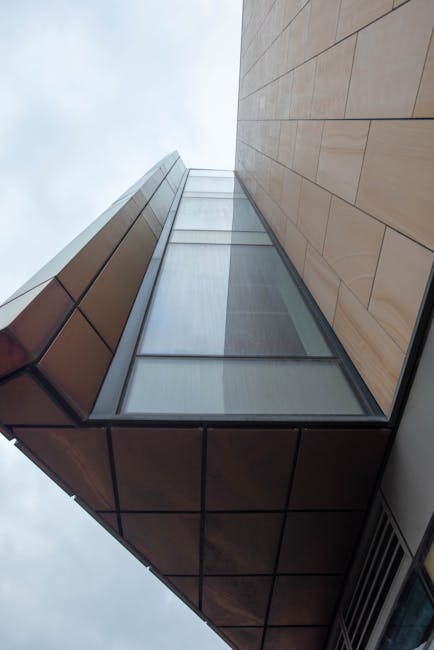Renting House With Solar Panels
In recent years, the popularity of solar energy has surged, leading many homeowners to install solar panels on their properties. If you’re considering renting a house with solar panels, you might have questions about how it works, the benefits, and what to look for in a rental agreement. This article will guide you through everything you need to know about renting a house with solar panels, ensuring you make an informed decision.
Understanding Solar Panels
Before diving into the specifics of renting a house with solar panels, it’s essential to understand what solar panels are and how they function. Solar panels convert sunlight into electricity, which can be used to power your home. Here are some key points:
- Types of Solar Panels: There are mainly two types of solar panels: photovoltaic (PV) panels, which generate electricity, and solar thermal panels, which are used for heating.
- How They Work: Solar panels absorb sunlight and convert it into direct current (DC) electricity. An inverter then converts this DC electricity into alternating current (AC), which is used in homes.
- Benefits: Solar panels can reduce electricity bills, increase property value, and contribute to environmental sustainability.
Benefits of Renting a House with Solar Panels
Renting a house with solar panels comes with several advantages. Here are some of the most significant benefits:
- Lower Utility Bills: With solar panels, you can significantly reduce your electricity costs. Depending on the size of the system and your energy consumption, you might even eliminate your electricity bill.
- Environmental Impact: Using solar energy reduces your carbon footprint, making it an eco-friendly choice.
- Potential for Energy Independence: Solar panels can provide a degree of energy independence, especially if the system includes battery storage.
- Increased Property Value: Homes with solar panels often have higher resale values, which can be beneficial if you decide to buy in the future.
What to Look for When Renting
When considering a rental property with solar panels, there are several factors to keep in mind:
1. Ownership of the Solar Panels
Determine whether the solar panels are owned by the landlord or if they are leased from a third party. This can affect your rental agreement and utility costs.
- Owned Panels: If the landlord owns the panels, you may benefit from lower utility bills without any additional costs.
- Leased Panels: If the panels are leased, the landlord may pass on some costs to you, or you may have to deal with specific terms regarding energy production.
2. Energy Production and Usage
Ask about the energy production of the solar panels. Understanding how much energy the system generates can help you gauge potential savings on your utility bills.
- Energy Bills: Request copies of previous energy bills to see how much the solar panels have reduced costs.
- Usage Patterns: Discuss how energy usage is monitored and whether you will have access to this information.
3. Rental Agreement Terms
Review the rental agreement carefully to understand your rights and responsibilities regarding the solar panels.
- Maintenance Responsibilities: Clarify who is responsible for maintaining the solar panels and any associated equipment.
- Utility Costs: Ensure the agreement specifies how utility costs will be handled, especially if the panels are leased.
- Termination Clauses: Understand what happens to the solar panels if you decide to move out or if the lease is terminated.
Potential Drawbacks
While there are many benefits to renting a house with solar panels, there are also some potential drawbacks to consider:
- Limited Control: If the solar panels are leased, you may have limited control over their maintenance and operation.
- Complicated Agreements: Rental agreements involving solar panels can be complex, requiring careful review to avoid misunderstandings.
- Variable Energy Production: Solar energy production can vary based on weather conditions and time of year, which may affect your energy savings.
Questions to Ask Your Landlord
Before signing a lease, it’s crucial to ask your landlord specific questions about the solar panels:
- Are the solar panels owned or leased?
- What is the average energy production of the solar panels?
- How are utility costs calculated?
- Who is responsible for maintenance and repairs?
- Can I see previous utility bills to understand savings?
Living in a Solar-Powered Home
Once you’ve secured a rental with solar panels, there are a few tips to maximize your experience:
- Monitor Your Energy Usage: Keep track of your energy consumption to understand how much you save with solar power.
- Adjust Your Habits: Try to use major appliances during peak sunlight hours to maximize the benefits of solar energy.
- Stay Informed: Learn about the solar system installed in your home, including how to troubleshoot minor issues.
Conclusion
Renting a house with solar panels can be a fantastic opportunity to enjoy lower utility bills while contributing to a more sustainable future. By understanding the benefits, potential drawbacks, and key questions to ask, you can make an informed decision that aligns with your lifestyle and values. Embrace the advantages of solar energy and enjoy your new home!
FAQs
Can I install additional solar panels if I rent a house with existing ones?
Generally, renters cannot make significant modifications to a property without the landlord’s permission. If you’re interested in adding more solar panels, discuss this with your landlord to see if it’s a possibility.
What happens if the solar panels break or malfunction?
The responsibility for repairs typically falls on the landlord, especially if the panels are owned by them. If they are leased, check the lease agreement for specific terms regarding maintenance and repairs.
Will I still receive a utility bill if I rent a house with solar panels?
Yes, you may




